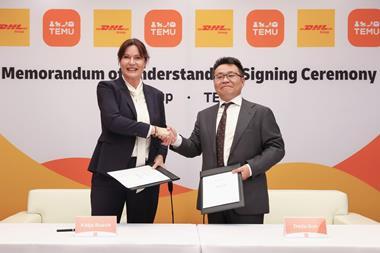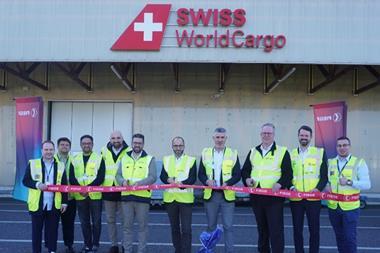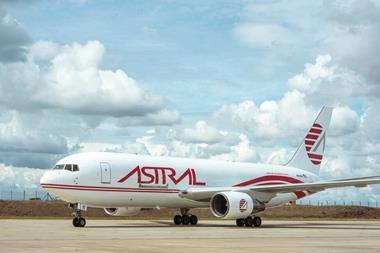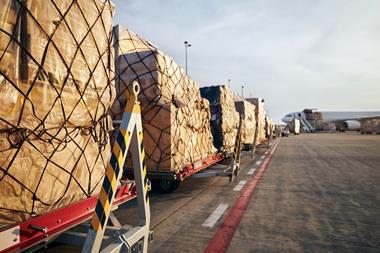At the 73rd IATA General Meeting and World Air Transport Summit in Cancun, Mexico, a resolution has been adopted to “accelerate the modernisation and transformation of the air cargo industry” through a customer-centric approach.
Measures covered by the resolution include digitisation of the supply chain for instant information sharing to improve efficiency; harmonisation of standards to facilitate safety, security and efficiency; the provision of responsive services through intelligent systems that can “self-monitor, send real-time alerts and respond to deviation”; and the use of data to drive quality improvements in the industry.
Noting that the World Trade Organization’s Trade Facilitation Agreement (TFA) entered into force in February this year, IATA director general and chief executive Alexandre de Juniac said: “The TFA commits governments to making trade faster, cheaper and more efficient. Air cargo processes are stuck in another century.
“To ensure that air cargo is ready to benefit from the expected $1trn boost in trade growth arising from the TFA and the improving global economic environment, we need a major overhaul of industry processes.”
IATA was keen to urge governments to work with industry to achieve its goals. It called for rapid implementation of the TFA, whose benefits include harmonised Customs rules and an emphasis on electronic documentation. Governments should also develop “smart regulations” to improve safety, security and efficiency in the supply chain, IATA said.
"The time is right for change. After several years of virtually no growth, air cargo demand is starting to pick up. We are also seeing new business opportunities with internet commerce and the global distribution of time and temperature sensitive cargo, especially pharmaceutical products,” de Juniac added.
E-commerce and pharmaceuticals are among the factors driving air cargo demand today, which is now forecast to grow by 7.5% in 2017 – up from the 3.6% growth seen last year – to 58.2m tonnes. According to IATA, the main driver of airfreight demand is urgent inventory restocking at the start of an economic upturn – an encouraging sign.
Asia Pacific carriers, in particular, are benefitting from this restocking activity. They account for about 40% of air cargo shipments, IATA said, noting China’s switch towards domestic demand and the continuing strength of Asia’s manufactured components and finished goods sectors.
Pointing out that air cargo accounts for around 35% of the total value of goods traded globally, the association warned against protectionism.
De Juniac said: “Nothing should stand in the way of aviation – the business of freedom. Aviation is globalisation at its very best. But to deliver aviation’s many benefits we need borders that are open to people and trade. Today we face headwinds from those who would deny the benefits of globalisation and point us in the direction of protectionism. This is a threat to our industry. We must bear witness to the achievements of our connected world.”
Overall, IATA expects airlines to report a $31.4bn in 2017 (up from the previously forecast $29.8bn) on revenues of $743bn (up from the previously forecast $736bn), but profitability will suffer from higher costs in terms of fuel, labour and maintenance. The cargo yield is expected to fall by one percent – the smallest decrease in recent years.
Other resolutions adopted at the IATA AGM related to aviation security and the development sustainable fuels.










